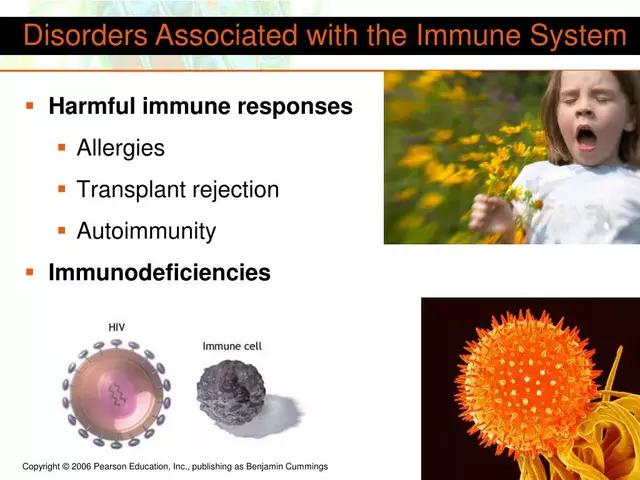Understanding Chemotherapy-Induced Nausea and Vomiting
As a cancer patient undergoing chemotherapy, one of the most common and unpleasant side effects is nausea and vomiting. This is caused by the body's natural response to the powerful drugs used in chemotherapy. In this section, we will explore the reasons behind chemotherapy-induced nausea and vomiting and how it affects patients.
Chemotherapy drugs can damage cells in the gastrointestinal tract, leading to the release of chemicals that trigger the nausea and vomiting reflex. This side effect can be distressing, affecting your overall quality of life, and in some cases, can even lead to more serious complications, such as dehydration and malnutrition.
The Role of Ondansetron in Managing Nausea and Vomiting
Ondansetron is a medication that belongs to a class of drugs called antiemetics. It is specifically designed to help prevent and treat nausea and vomiting caused by chemotherapy. In this section, we will discuss how Ondansetron works and why it is an important part of cancer treatment.
Ondansetron works by blocking the action of serotonin, a chemical in the brain that can cause nausea and vomiting. By blocking the serotonin receptors, Ondansetron helps to prevent the onset of these unpleasant side effects, making chemotherapy more tolerable for patients.
How to Take Ondansetron
It is crucial to follow your healthcare professional's advice on how to take Ondansetron correctly. In this section, we will go over the general guidelines for taking this medication, but always remember to consult with your doctor for personalized instructions.
Ondansetron can be taken orally in the form of a tablet, a disintegrating tablet, or a liquid solution. It is usually taken 30 minutes before the start of chemotherapy and may be continued for a few days after treatment, depending on your doctor's recommendations. It is essential to take Ondansetron exactly as prescribed by your healthcare provider to ensure its effectiveness in managing nausea and vomiting.
Possible Side Effects of Ondansetron
While Ondansetron is generally well-tolerated, some side effects may occur. In this section, we will discuss some of the possible side effects of Ondansetron and what you can do to manage them.
Common side effects of Ondansetron include headache, dizziness, constipation, and fatigue. Most of these side effects are mild and should resolve on their own. However, if you experience severe or persistent side effects, it is important to contact your healthcare provider. In rare cases, Ondansetron can cause more serious side effects, such as an irregular heartbeat or an allergic reaction. If you experience symptoms like chest pain, shortness of breath, or swelling of the face or throat, seek medical attention immediately.
Interactions with Other Medications
As with any medication, Ondansetron may interact with other drugs you are taking. In this section, we will discuss some of the potential drug interactions and the importance of informing your healthcare provider of all medications you are currently taking.
Ondansetron can interact with certain medications, including some antidepressants, antifungal drugs, and other antiemetics. These interactions can increase the risk of side effects or reduce the effectiveness of either medication. It is crucial to inform your healthcare provider of all prescription and over-the-counter medications you are taking, as well as any supplements or herbal products, to ensure the safe and effective use of Ondansetron.
Precautions and Contraindications
Before starting Ondansetron, it is essential to discuss any pre-existing medical conditions or allergies with your healthcare provider. In this section, we will cover some of the precautions and contraindications associated with the use of Ondansetron.
Ondansetron may not be suitable for everyone. If you have a history of heart problems, liver disease, or an electrolyte imbalance, your doctor may need to adjust your dosage or monitor you more closely during treatment. Additionally, if you are allergic to Ondansetron or any of its components, you should not take this medication.
Pregnancy and Breastfeeding Considerations
If you are pregnant or breastfeeding, it is important to discuss the use of Ondansetron with your healthcare provider. In this section, we will explore the safety considerations for using Ondansetron during pregnancy and breastfeeding.
While Ondansetron is not expected to harm an unborn baby, it is important to weigh the potential benefits and risks with your healthcare provider. If you are breastfeeding, it is not known whether Ondansetron passes into breast milk or if it could harm a nursing baby. Therefore, it is essential to discuss the use of this medication with your doctor if you are breastfeeding.
Managing Chemotherapy-Induced Nausea and Vomiting with Lifestyle Changes
In addition to taking Ondansetron, certain lifestyle changes can help manage chemotherapy-induced nausea and vomiting. In this section, we will discuss some helpful tips for coping with these side effects during your cancer treatment.
Some strategies for managing nausea and vomiting include eating smaller, more frequent meals, avoiding strong-smelling foods, and staying hydrated with clear liquids. Additionally, engaging in relaxation techniques, such as deep breathing exercises or meditation, can help alleviate stress and reduce the severity of nausea and vomiting.
When to Contact Your Healthcare Provider
It is important to keep an open line of communication with your healthcare provider throughout your cancer treatment. In this section, we will discuss some situations in which you should contact your healthcare provider regarding your use of Ondansetron.
If you experience severe or persistent side effects from Ondansetron, it is essential to contact your healthcare provider. They may need to adjust your dosage or recommend alternative medications to help manage your nausea and vomiting. Additionally, if you notice any new or worsening symptoms, such as chest pain or difficulty breathing, seek medical attention immediately.





Comments (10)